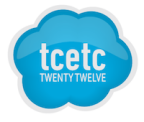 Earlier this spring, the Communication, Computing, and Technology in Education Program at Columbia University Teachers College held theEducational Technology Conference to bring together emerging scholars working in the field of educational technology. The two-day event featured themes of learning with mobile technologies, social media and games as well as focused discussions about designing instructional media to reach and empower diverse learners. Guest speakers included Andrew Gardner of BrainPOP and a group of educators from Quest to Learn, the innovative “game school” for digital kids here in New York City. However, a major highlight of the conference was the keynote address from our very own Lori Takeuchi, Director of Research at the Joan Ganz Cooney Center.
Earlier this spring, the Communication, Computing, and Technology in Education Program at Columbia University Teachers College held theEducational Technology Conference to bring together emerging scholars working in the field of educational technology. The two-day event featured themes of learning with mobile technologies, social media and games as well as focused discussions about designing instructional media to reach and empower diverse learners. Guest speakers included Andrew Gardner of BrainPOP and a group of educators from Quest to Learn, the innovative “game school” for digital kids here in New York City. However, a major highlight of the conference was the keynote address from our very own Lori Takeuchi, Director of Research at the Joan Ganz Cooney Center.

Lori Takeuchi at the Teachers College Educational Technology Conference – May 19-20. Photo by Wan Park.
Lori described the multi-level impact of the Joan Ganz Cooney Center using an ecological perspective of how children learn and develop. In our dynamic, networked, digital, global society (depending on which buzz words you prefer) children no longer learn solely from experiences in the classroom or the home. Rather, children are provided with a variety of opportunities to learn, both introspectively and from those around them, across nested levels of interactions that can be termed micro, meso, exo, and macro (Bronfenbrenner, 1979). This framework, originally conceived in the 1970s by Cornell developmental psychologist Urie Bronfenbrenner, has been adapted by the Center to explain digital lives as well. For example, where in the past a child would be shaped by experiences and interactions in community centers or on soccer teams, they are now additionally participating in virtual worlds and on social networks.
The Cooney Center’s work targets each level of the ecological framework. Whether through creating experiences for families to engage in at home likeStoryVisit, collaborating with groups in the community like the Boys and Girls Club’s Club Tech or the New York Hall of Science, generatingreports to effect policy as well as the research and development of new products or even at the national level with the National STEM Video Game Challenge, the Center is working to benefit children’s learning across the various contexts of their lives.
To highlight some of the most recent research being done, Lori gave those at the conference a sneak preview by sharing findings from the e-book QuickReport (now available online). Taking recent trends in reading from screens into account, the study (comprised of three different phases) examined how e-books are effecting, or will effect in the future, how children learn how to read. Looking again to the different contexts of children’s lives, the studies revolved around experiences of kids reading books with their parents, the process of families selecting books and e-books to read, and parents’ practices, perceptions and opinions of reading with e-books. The conference audience responded enthusiastically to the research, generating many questions and ideas for expansion in the future as the event continued.


